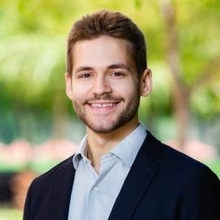COMPUTATIONAL SOCIAL SCIENCE WORKSHOP
Abstract: Research on organizations has produced a vast amount of theory about how the members of organizations learn to coordinate with each other and to adapt to their work environment. But linking these theories to data has been challenging, as large-sample studies typically need to rely on very coarse measures of collective behavior. I will present recent work in which I use data on Esports teams (i.e., teams of professional video-game players) to make progress in this area. In one project, I use sequence analysis with extremely fine-grained measures of collective behavior in Esports to study how teams react to a changing task environment. In another project, I rely on a natural experiment which randomly allocated professional players to different teams to study how prior collaborations among members of a team affect the division of labor among them. I will present both studies, and discuss when and why I think that Esports data can be useful in developing and testing theories of general relevance to coordination and adaptation inside organizations.
Julien Clement is Assistant Professor of Organizational Behavior at the Stanford Graduate School of Business. His work focuses on the dynamics of coordination inside organizations. He is especially interested in how formal and informal organizational structures interact to facilitate coordination among the members of an organization: how does an organization’s structure affect how its members form relationships, develop routines, and adapt these routines when environmental demands change? How do formal structures emerge in the first place? And when can organizations thrive without any formal structure? He investigates these issues through a ‘micro-analytic’ approach: rather than study organizations as broad aggregates, he starts by thinking about the dynamics of interactions among small numbers of individuals and then seeks to understand how these interactions aggregate into organizational outcomes with the aid of different types of organizational structures. Professor Clement engages in both theoretical work and empirical work. His theoretical work relies on agent-based models, while his empirical work typically relies on highly granular data which allows him to observe interactions among individuals and model the aggregation of these interactions into organizational outcomes.
This workshop is open to the Yale community and will be held in a hybrid format. Current Yale faculty, students, and staff are encouraged to attend in person. Participants will also be able to attend remotely on Zoom. To receive announcements and invitations to attend either in person or remotely, please subscribe at https://csap.yale.edu/computational-social-science-workshop.
This workshop is cosponsored by the Center for the Study of American Politics (CSAP) and the Yale School of Management (SOM) with support from the Initiative for Leadership and Organization at SOM.
